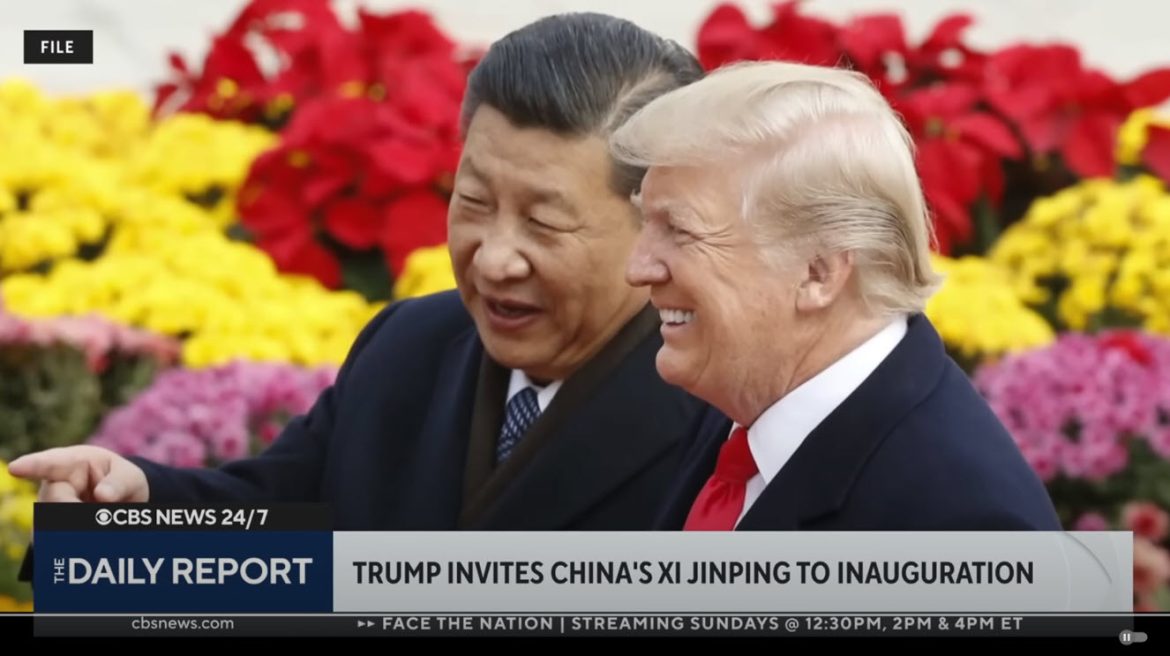President-elect Donald Trump has reportedly extended an invitation to Chinese President Xi Jinping to attend his January 20th inauguration. The invitation marks a significant diplomatic gesture amid escalating tensions between the United States and China, fueled by Trump’s campaign promises to impose a 60-percent tariff on Chinese imports.
According to multiple sources, officials are preparing for the attendance of several foreign dignitaries at the swearing-in ceremony, though it remains unclear if President Xi intends to accept the invitation. The potential presence of the Chinese leader has sparked widespread speculation about the future of U.S.-China relations under the Trump administration.
A Diplomatic Tightrope
The reported invitation underscores the complex dynamic between the incoming Trump administration and China. During his campaign, Trump frequently criticized China’s trade practices, accusing the country of unfair trade policies, intellectual property theft, and currency manipulation. His pledge to impose steep tariffs on Chinese goods has drawn sharp warnings from Beijing, which has indicated it could retaliate with measures of its own.
Despite the heated rhetoric, Trump’s outreach to Xi may signal an effort to reset or redefine the bilateral relationship. Analysts suggest that the invitation could be an attempt to foster goodwill, even as Trump prepares to take a hardline stance on trade and other issues.
Global Attention on the Inauguration
If Xi accepts, his attendance would make him one of the most high-profile international figures at the ceremony, drawing global attention to the event. While foreign leaders occasionally attend U.S. presidential inaugurations, their presence is not customary, particularly for heads of state from rival powers.
Sources close to the planning committee for the inauguration report that other dignitaries are also being invited, reflecting the new administration’s desire to project an image of international engagement despite its “America First” messaging.
Balancing Trade and Diplomacy
The timing of the invitation has raised eyebrows, coming on the heels of Trump reiterating his commitment to tariffs that could severely impact the U.S.-China trade relationship. Economists warn that such measures could trigger a trade war, with significant consequences for both economies. Yet, Trump’s supporters argue that his tough stance is necessary to protect American jobs and industries.
For Beijing, Xi’s potential attendance would carry symbolic weight, signaling China’s willingness to engage with the new administration despite the looming economic challenges. However, accepting the invitation also poses risks, as it could be seen domestically in China as a concession to Trump’s aggressive policies.
Uncertain Outcomes
As the inauguration draws closer, the focus remains on whether President Xi will attend and what message his decision will send to the international community. Regardless of the outcome, Trump’s reported invitation highlights the intricate balancing act that will define his administration’s approach to one of the world’s most critical bilateral relationships.
With the stage set for Trump’s presidency, his overture to China is one of many early moves that will shape his foreign policy trajectory and the global order in the coming years.



